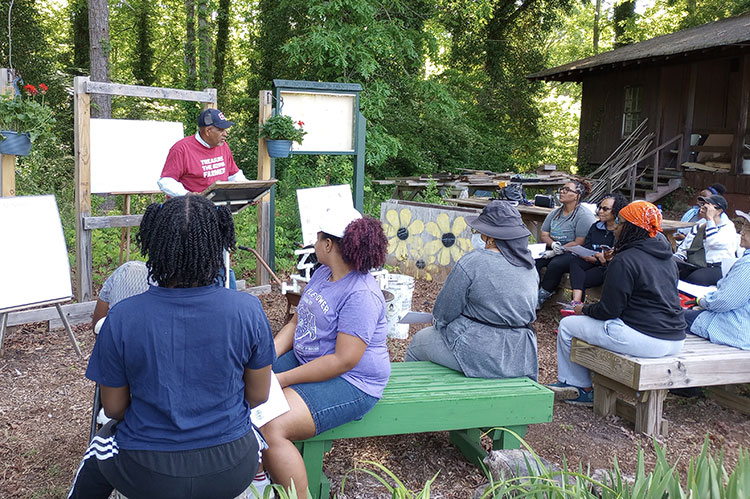By April Reese
University of Georgia
Every winter, many homes in Georgia fall victim to chimney fires. University of Georgia foresters say cleaning a chimney helps prevent the risk of these fires.
David Moorhead, UGA professor of silviculture, or commercial forestry, says it's important to check your chimney and burn an efficient fire.
Give your fireplace a winter checkup
"Make sure all fireplace equipment is in good shape," Moorhead said. That includes stoves, inserts and fireplaces. Pay close attention to the flues, chimneys and stovepipe to make sure they're clean and ready to go for the winter.
Buildups in chimneys can cause fires. "You will get buildup of material and soot," Moorhead said. "In some cases, this causes creosote, which is an oily deposit inside of a chimney or flue. In certain circumstances, that can cause a fire."
To help avoid a house fire, have your chimney cleaned.
"A little bit of preventive maintenance can really save a lot of problems down the road," Moorhead said. "Typically, you'll need to thoroughly check all of the equipment, any electrical components, the blowers or anything that might be associated with your wood-burning units."
Check the integrity of your chimney, stovepipe and any flame arresters, he said. And check the hearth in open fireplaces.
"If you have an open fireplace, without a screen, it's very likely you could have things that may have nested in there over the summer," he said. "It's good to clean out any nests that may be in the chimney flu, because these could cause a flash fire when you first light your fireplace."
If you use a fireplace with a pilot light or gas starter, check the fittings to make sure they're working properly. "If you have any questions, contact someone who can come out and check the connections," Moorhead said.
Proper firewood: hardwoods
"One of the things that can really help in not only safety but in efficiency, too, is to use the right kind of firewood," he said. The best wood is seasoned because its moisture content has been reduced through drying.
Moorhead suggests splitting and stacking the wood and keeping a cover over it. With normal Georgia temperatures, he said, the wood will air-dry sufficiently in three or four months.
Don't go out and cut living trees for firewood, Moorhead said. "You'll be better off to work on some trees that have been cut previously and have dried out a little," he said, "or to buy wood from a vendor."
"Green wood is going to have a high moisture content that's going to allow a lot of the extractives in wood to go up in smoke and form residues on flues, chimneys and stovepipes," he said. "Over time, that's where we get a buildup of creosote that could start a chimney or a flue fire."
Heat efficiency
"Seasoned wood is particularly important for an efficient heat source, as well as safety," he said. "Hardwoods like oak, hickory, hard maple and pecan give a higher heat value and last longer."
Pine can be good starter wood but burns too quickly to be an efficient heat source. Moorhead recommends using only seasoned pine and in moderation.
"You won't want to go on a diet of 100-percent pine, but a little won't hurt," he said.






